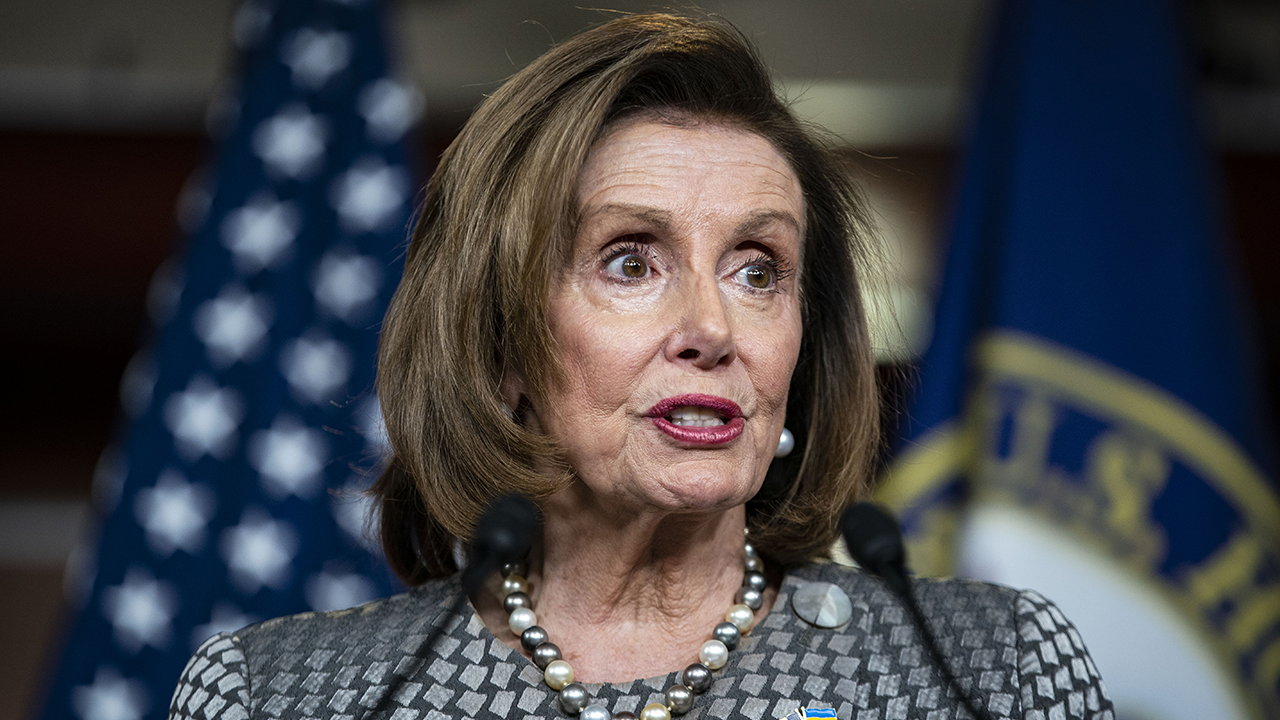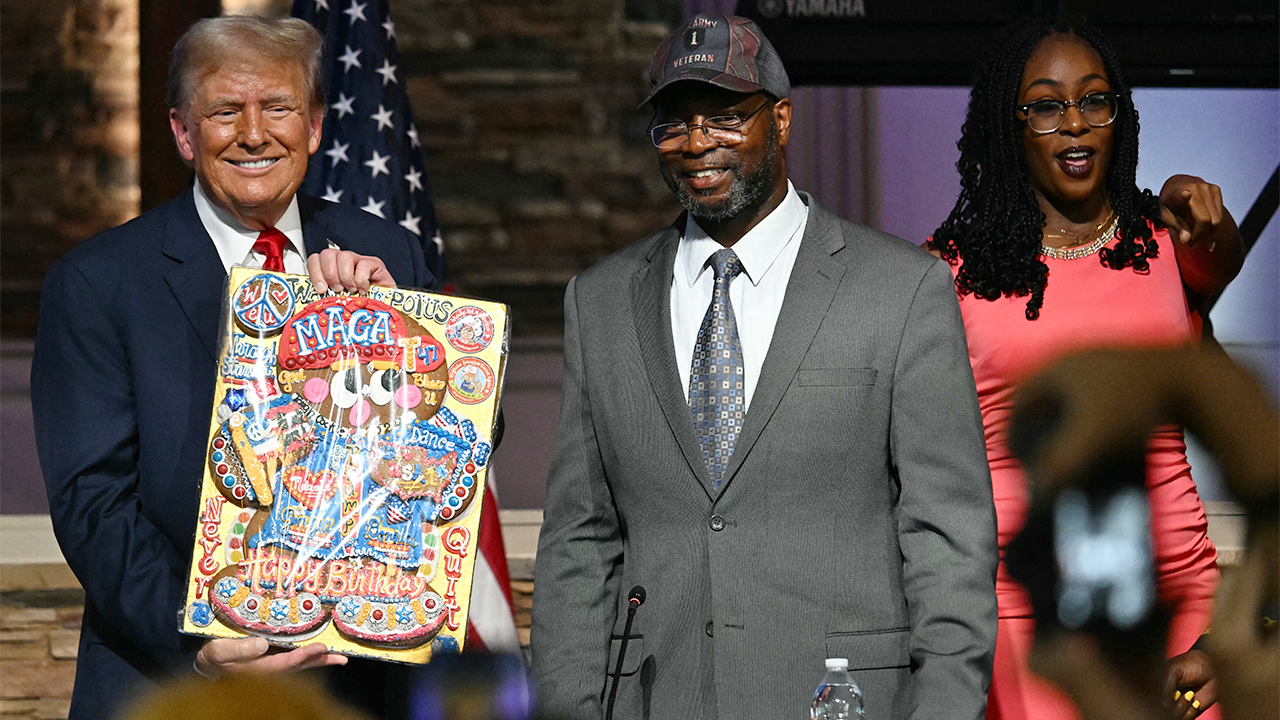Maryland Gov. Wes Moore will issue a mass pardon of more than 175,000 marijuana convictions Monday morning, one of the nation’s most sweeping acts of clemency involving a drug now in widespread recreational use.
Maryland
2024 NCAA DI men's lacrosse championship: Bracket, schedule, scores

The 2024 NCAA DI men’s lacrosse championship began with the selection show on Sunday, May 5. The tournament continues with the semifinals Saturday through the title game on May 27 at Lincoln Financial Field in Philadelphia, Pennsylvania.
👉 See the full list of selections here
2024 NCAA DI men’s lacrosse championship bracket
➡️ Click or tap here for the interactive bracket
2024 NCAA DI men’s lacrosse championship schedule
All times Eastern
Monday, May 27 – Championship | ESPN
Wednesday, May 8 — Opening round | ESPN+
May 11 — First round (Day 1) | ESPNU
May 12 — First round (Day 2) | ESPNU
May 18-19 — Quarterfinals | ESPNU
2024 NCAA DI men’s lacrosse championship history
Notre Dame captured its first title in DI men’s lacrosse last season after defeating Duke, 13-9. Syracuse leads all programs with 10 national championships including their most recent championship win in 2009.
| YEAR | CHAMPION | COACH | SCORE | RUNNER-UP | HOST OR SITE |
|---|---|---|---|---|---|
| 2023 | Notre Dame (14-2) | Kevin Corrigan | 13-9 | Duke | Philadelphia, Pa. |
| 2022 | Maryland (18-0) | John Tillman | 9-7 | Cornell | East Hartford, Conn. |
| 2021 | Virginia (14-4) | Lars Tiffany | 17-16 | Maryland | East Hartford, Conn. |
| 2020 | Canceled due to COVID-19 | — | — | — | — |
| 2019 | Virginia (17-3) | Lars Tiffany | 13-9 | Yale | Philadelphia, Pa. |
| 2018 | Yale (17-3) | Andy Shay | 13-11 | Duke | Foxborough, Mass. |
| 2017 | Maryland (16-3) | John Tillman | 9-6 | Ohio State | Foxborough, Mass. |
| 2016 | North Carolina (12-6) | Joe Breschi | 14-13 (ot) | Maryland | Philadelphia |
| 2015 | Denver (17-2) | Bill Tierney | 10-5 | Maryland | Philadelphia |
| 2014 | Duke (17-3) | John Danowski | 11-9 | Notre Dame | Baltimore |
| 2013 | Duke (16-5) | John Danowski | 16-10 | Syracuse | Philadelphia |
| 2012 | Loyola (Md.) (18-1) | Charley Toomey | 9-3 | Maryland | Foxborough, Mass. |
| 2011 | Virginia (13-5) | Dom Starsia | 9-7 | Maryland | Baltimore |
| 2010 | Duke (16-4) | John Danowski | 6-5 (ot) | Notre Dame | Baltimore |
| 2009 | Syracuse (16-2) | John Desko | 10-9 (ot) | Cornell | Boston |
| 2008 | Syracuse (16-2) | John Desko | 13-10 | Johns Hopkins | Boston |
| 2007 | Johns Hopkins (13-4) | Dave Pietramala | 12-11 | Duke | Baltimore |
| 2006 | Virginia (17-0) | Dom Starsia | 15-7 | Massachusetts | Philadelphia |
| 2005 | Johns Hopkins (16-0) | Dave Pietramala | 9-8 | Duke | Philadelphia |
| 2004 | Syracuse (15-2) | John Desko | 14-13 | Navy | Baltimore |
| 2003 | Virginia (15-2) | Dom Starsia | 9-7 | Johns Hopkins | Baltimore |
| 2002 | Syracuse (15-2) | John Desko | 13-12 | Princeton | Rutgers |
| 2001 | Princeton (14-1) | Bill Tierney | 10-9 (ot) | Syracuse | Rutgers |
| 2000 | Syracuse (15-1) | John Desko | 13-7 | Princeton | Maryland |
| 1999 | Virginia (13-3) | Dom Starsia | 12-10 | Syracuse | Maryland |
| 1998 | Princeton (14-1) | Bill Tierney | 15-5 | Maryland | Rutgers |
| 1997 | Princeton (16-0) | Bill Tierney | 19-7 | Maryland | Maryland |
| 1996 | Princeton (14-1) | Bill Tierney | 13-12 (ot) | Virginia | Maryland |
| 1995 | Syracuse (13-2) | Roy Simmons Jr. | 13-9 | Maryland | Maryland |
| 1994 | Princeton (14-1) | Bill Tierney | 9-8 (ot) | Virginia | Maryland |
| 1993 | Syracuse (12-2) | Roy Simmons Jr. | 13-12 | North Carolina | Maryland |
| 1992 | Princeton (13-2) | Bill Tierney | 10-9 (2ot) | Syracuse | Penn |
| 1991 | North Carolina (16-0) | Dave Klarmann | 18-13 | Towson | Syracuse |
| 1990 | Syracuse* (13-0) | Roy Simmons Jr. | 21-9 | Loyola Maryland | Rutgers |
| 1989 | Syracuse (14-1) | Roy Simmons Jr. | 13-12 | Johns Hopkins | Maryland |
| 1988 | Syracuse (15-0) | Roy Simmons Jr. | 13-8 | Cornell | Syracuse |
| 1987 | Johns Hopkins (10-3) | Don Zimmerman | 11-10 | Cornell | Rutgers |
| 1986 | North Carolina (11-3) | Willie Scroggs | 10-9 (ot) | Virginia | Delaware |
| 1985 | Johns Hopkins (13-1) | Don Zimmerman | 11-4 | Syracuse | Brown |
| 1984 | Johns Hopkins (14-0) | Don Zimmerman | 13-10 | Syracuse | Delaware |
| 1983 | Syracuse (14-1) | Roy Simmons Jr. | 17-16 | Johns Hopkins | Rutgers |
| 1982 | North Carolina (14-0) | Willie Scroggs | 7-5 | Johns Hopkins | Virginia |
| 1981 | North Carolina (12-0) | Willie Scroggs | 14-13 | Johns Hopkins | Princeton |
| 1980 | Johns Hopkins (14-1) | Henry Ciccarone | 9-8 (2ot) | Virginia | Cornell |
| 1979 | Johns Hopkins (13-0) | Henry Ciccarone | 15-9 | Maryland | Maryland |
| 1978 | Johns Hopkins (13-1) | Henry Ciccarone | 13-8 | Cornell | Rutgers |
| 1977 | Cornell (13-0) | Richie Moran | 16-8 | Johns Hopkins | Virginia |
| 1976 | Cornell (16-0) | Richie Moran | 16-13 (ot) | Maryland | Brown |
| 1975 | Maryland (11-3) | Bud Beardmore | 20-13 | Navy | Johns Hopkins |
| 1974 | Johns Hopkins (12-2) | Bob Scott | 17-12 | Maryland | Rutgers |
| 1973 | Maryland (14-1) | Bud Beardmore | 10-9 (2ot) | Johns Hopkins | Penn |
| 1972 | Virginia (11-4) | Glenn Thiel | 13-12 | Johns Hopkins | Maryland |
| 1971 | Cornell (13-1) | Richie Moran | 12-6 | Maryland | Hofstra |
*After the 1990 championship, the NCAA Committee on Infractions determined that Paul Gait had played in the 1990 championship while ineligible. Under NCAA rules, Syracuse and Paul Gait’s records for that championship were vacated. The NCAA does not recognize Syracuse and coach Roy Simmons Jr.’s 3-0 record, and Paul Gait’s 7 goals, 7 assists and his participation in that championship.

Maryland
Maryland Gov. Wes Moore set to issue 175,000 pardons for marijuana convictions

ANNAPOLIS, Md. (AP) — Maryland Gov. Wes Moore is scheduled to sign an executive order to issue 175,000 pardons for marijuana convictions Monday, according to a news report.
The pardons will forgive low-level marijuana possession charges for an estimated 100,000 people. Moore, a Democrat, told The Washington Post Sunday night that criminal records have been used to deny housing, employment and education.
“I’m ecstatic that we have a real opportunity with what I’m signing to right a lot of historical wrongs,” Moore said. “If you want to be able to create inclusive economic growth, it means you have to start removing these barriers that continue to disproportionately sit on communities of color.”
Recreational cannabis was legalized in Maryland in 2023 after voters approved a constitutional amendment in 2022. Now, 24 states and the District of Columbia have legalized recreational cannabis.
Moore plans to sign the executive order Monday morning in the state Capitol in Annapolis with Maryland Attorney General Anthony Brown in attendance.
Brown, a Democrat, described the pardons as “certainly long overdue as a nation” and “a racial equity issue.”
“While the pardons will extend to anyone and everyone with a misdemeanor conviction for the possession of marijuana or paraphernalia, this unequivocally, without any doubt or reservation, disproportionately impacts — in a good way — Black and Brown Marylanders,” Brown told the Post.
Maryland
Maryland governor to pardon 175,000 marijuana convictions in sweeping order

“I’m ecstatic that we have a real opportunity with what I’m signing to right a lot of historical wrongs,” Moore said in an interview. “If you want to be able to create inclusive economic growth, it means you have to start removing these barriers that continue to disproportionately sit on communities of color.”
Moore called the scope of his pardons “the most far-reaching and aggressive” executive action among officials nationwide who have sought to unwind criminal justice inequities with the growing legalization of marijuana. Nine other states and multiple cities have pardoned hundreds of thousands of old marijuana convictions in recent years, according to the National Organization for the Reform of Marijuana Laws. Legalized marijuana markets reap billions in revenue for state governments each year, and polls show public sentiment on the drug has also turned — with more people both embracing cannabis use and repudiating racial disparities exacerbated by the War on Drugs.
The pardons, timed to coincide with Wednesday’s Juneteenth holiday, a day that has come to symbolize the end of slavery in the United States, come from a rising star in the Democratic Party and the lone Black governor of a U.S. state whose ascent is built on the promise to “leave no one behind.”
Derek Liggins, 57, will be among those pardoned Monday, more than 16 years after his last day in prison for possessing and dealing marijuana in the late-1990s. Despite working hard to build a new life after serving time, Liggins said he still loses out on job opportunities and potential income.
“You can’t hold people accountable for possession of marijuana when you’ve got a dispensary on almost every corner,” he said.
Nationwide, according to the ACLU, Black people were more than three times as likely than White people to be arrested for marijuana possession. President Biden in 2022 issued a mass pardon of federal marijuana convictions — a reprieve for roughly 6,500 people — and urged governors to follow suit in states, where the vast majority of marijuana prosecutions take place.
Maryland’s pardon action rivals only Massachusetts, where the governor and an executive council together issued a blanket pardon in March expected to impact hundreds of thousands of people.
But Moore’s pardons appear to stand alone in the impact to communities of color in a state known for having one of the nation’s worst records for disproportionately incarcerating Black people for any crimes. More than 70 percent of the state’s male incarcerated population is Black, according to state data, more than double their proportion in society.
The most diverse state on the East Coast, Maryland has a dramatically higher concentration of Black people compared with other states that have issued broad pardons for marijuana: 33 percent of Maryland’s population is Black, while the next highest is Illinois, with 15 percent.
Maryland is the only state in the D.C. region that has fully legalized cannabis sales, though both the District and Virginia have decriminalized possession and have gray markets for the drug. Virginia and D.C. have not issued mass pardons of cannabis convictions, according to the National Organization for the Reform of Marijuana Laws, but Biden’s pardons had impact in D.C. because they applied to thousands of people arrested on federal land.
Maryland Attorney General Anthony G. Brown (D), called the pardons “certainly long overdue as a nation” and “a racial equity issue.”
“While the pardons will extend to anyone and everyone with a misdemeanor conviction for the possession of marijuana or paraphernalia, this unequivocally, without any doubt or reservation, disproportionately impacts — in a good way — Black and Brown Marylanders,” he said in an interview. “We are arrested and convicted at higher rates for possession and use of marijuana when the rate at which we used it was no different than any other category of people.”
Reducing the state’s mass incarceration disparity has been a chief goal of Moore, Brown and Maryland Public Defender Natasha Dartigue, who are all the first Black people to hold their offices in the state. Brown and Dartigue have launched a prosecutor-defender partnership to study the “the entire continuum of the criminal system,” from stops with law enforcement to reentry, trying to detect all junctures where discretion or bias could influence how justice is applied, and ultimately reform it.
Maryland officials said the pardons, which would also apply to people who are dead, will not result in releasing anyone from incarceration because none are imprisoned. Misdemeanor cannabis charges yield short sentences and prosecutions for misdemeanor criminal possession have stopped, as possessing small amounts of the drug is legal statewide.
Moore’s pardon action will automatically forgive every misdemeanor marijuana possession charge the Maryland judiciary could locate in the state’s electronic court records system, along with every misdemeanor paraphernalia charge tied to use or possession of marijuana. Maryland is the only state to pardon such paraphernalia charges, state officials said.
The electronic records in some Maryland jurisdictions date back to the 1980s, while others begin in the 1990s or later. People with older cannabis convictions stored on paper records may also apply for a pardon.
Demographic data on those pardoned is limited as of Monday.
But Moore’s administration noted nearly a quarter of the pardoned convictions were in Baltimore — a city with a history of unconstitutional over-policing of Black communities — even though less than 10 percent of the state’s population lives there. In the D.C. suburbs, roughly 12 percent of the pardoned convictions are in Prince George’s County, and 6 percent are in Montgomery County.
An ACLU report from 2013 noted that cannabis arrests in states increased nationwide in the first decade of the century, and Maryland and D.C. had among the top five highest arrest rates in the country.
As recently as 2020, according to a state analysis, cannabis arrests in Maryland exceeded 10,000 per year — nearly a decade after possession of small amounts was decriminalized and three years after it became legal to be a medical patient.
As Maryland prepared to legalize the drug for recreational use in 2022 — joining nearly two dozen other states — a report by state analysts found that White Maryland residents use cannabis at higher rates than Black residents, but Black people were more than twice as likely to be charged with possession. By law, 35 percent of the tax revenue generated by legal marijuana sales must go back into communities where cannabis enforcement was disproportionate to the rest of the state.
“The entire basis of the work that we did was about righting injustices from the War on Drugs,” said Del. Jheanelle K. Wilkins (D-Montgomery), chair of the Maryland Legislative Black Caucus. She noted Maryland has newly elevated Black people to key offices of power — the House speaker among them — and said, “We’re in this moment in Maryland where we’re truly focused on equity.”
People who benefit from the mass pardon will see the charges marked in state court records within two weeks, and they will be eliminated from criminal background check databases within 10 months. The convictions, however, will still appear in public court records unless someone applies for an expungement.
Other states have forgone pardons — which forgive the crime — and instead simply blocked cannabis convictions from public view. California, for example, has sealed, dismissed or expunged more than 200,000 convictions since a 2018 law passed requiring it.
The nationwide efforts to lessen the impact of marijuana convictions follow a recent loosening of federal regulations that could clear the way for more widespread access to the drug across the United States.
The Biden administration began working on the issue in 2022, when the president directed health officials to review whether existing science supported reclassifying cannabis so that it would no longer be considered a Schedule I controlled substance, which carries the most stringent restrictions. Other Schedule I drugs include heroin, LSD and ecstasy.
Health officials recommended reclassifying cannabis as a Schedule III drug, which puts it among substances such as Tylenol with codeine, ketamine and anabolic steroids. In April, the Drug Enforcement Administration concurred with federal health officials and Attorney General Merrick Garland officially recommended reclassifying the drug.
Although reclassification does not legalize cannabis federally, it does pave the way for more research on the drug and may broaden access to medical marijuana.
This year for the first time marijuana surpassed alcohol in daily use, with 17.7 million people reporting daily or near-daily marijuana use.
Liggins, who is being pardoned, said he applauds Moore’s forgiveness of marijuana crimes that would not be prosecuted under Maryland’s laws today — even if it wasn’t immediately clear how much this would transform his life.
Shortly after leaving prison in 2008, the Center for Urban Families helped find the job he still holds today with an HVAC construction company in Baltimore. He said his employer trusts him to lead teams on multimillion-dollar projects as a foreman, but Liggins cannot work on the highest-paying contracts with the federal government because of his marijuana convictions. Despite his pardon, Liggins is unsure whether a related charge for providing a false statement will still prevent him from working on those projects.
“A person can change,” he said. “A person should be able to pay their debt to society and start fresh.”
Ovetta Wiggins contributed to this report.
Maryland
DNA evidence from Los Angeles home invasion helps investigators find Maryland murder suspect

Authorities in Maryland tracked down a suspect connected to the 2023 killing of a mother of five with the help of DNA evidence from a home invasion in Los Angeles.
According to the Harford County Sheriff’s Office, Rachel Morin, 37, was found dead one day after going missing on a hiking trail on August 6 of last year. Officials said Morin was attacked and pulled off the trail before being killed.
The case remained unsolved for several months as the suspect escaped the scene, with only sketches released depicting his face.
That all changed on Friday, however, when a man was arrested in Tulsa, Oklahoma on suspicion of murder and rape in connection to Morin’s death.
The turning point in the case, authorities said, was DNA evidence from a March 2023 home invasion in Los Angeles. The alleged killer, 23-year-old Victor Antonio Martinez-Hernandez, is also suspected of attacking a 9-year-old girl and her mother in the L.A. case.
Authorities say Martinez-Hernandez entered the United States illegally in February 2023 from El Salvador. He was identified through the DNA evidence in May, though it took more time to find his location before he was found in Tulsa.
There was no word on when he’ll be extradited to Maryland for a potential criminal trial. No motive is currently known, authorities said.
-

 News1 week ago
News1 week agoWould President Biden’s asylum restrictions work? It’s a short-term fix, analysts say
-

 Politics1 week ago
Politics1 week agoNewson, Dem leaders try to negotiate Prop 47 reform off California ballots, as GOP wants to let voters decide
-

 World1 week ago
World1 week agoDozens killed near Sudan’s capital as UN warns of soaring displacement
-

 News1 week ago
News1 week agoRead Justice Clarence Thomas’s Financial Disclosures for 2023
-

 World1 week ago
World1 week ago‘Bloody policies’: Bodies of 11 refugees and migrants recovered off Libya
-

 Politics1 week ago
Politics1 week agoGun group vows to 'defend' Trump's concealed carry license after conviction
-

 Politics1 week ago
Politics1 week agoShould Trump have confidence in his lawyers? Legal experts weigh in
-

 Politics6 days ago
Politics6 days agoGOP releases Jan. 6 clip of Pelosi saying 'I take responsibility' as she discussed National Guard absence




















